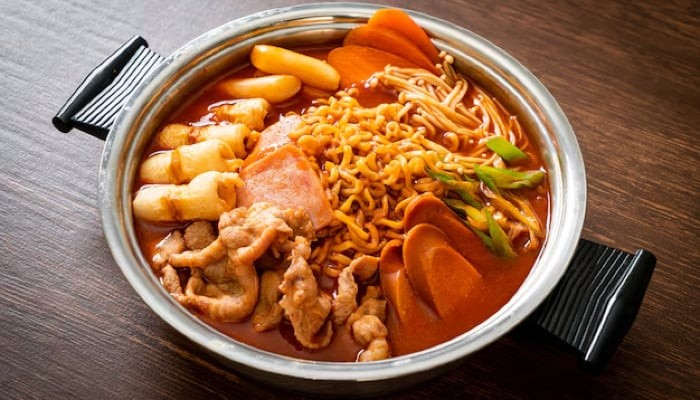
North Korea has issued a nationwide ban on two beloved South Korean dishes - budae-jjigae (army base stew) and tteokbokki (spicy rice cakes) - as part of its ongoing efforts to limit South Korean cultural influence.
The ban, which took effect recently, prohibits restaurants and food vendors across the country from selling these dishes that have gained popularity since their introduction in 2017. Local authorities have warned that establishments caught violating the ban face closure.
"Sales of tteokbokki and budae-jjigae at the marketplace have completely stopped," reported a merchant from Ryanggang Province, speaking anonymously due to safety concerns. The ban applies to all restaurant networks and market food stands nationwide, including those in the capital Pyongyang.
The move appears to be an extension of North Korea's military cooperation with Russia and its nuclear ambitions, which aims to prevent the spread of South Korean cultural elements in the North. In recent years, South Korean influences have increasingly seeped into North Korean society through various channels, including smuggled media content.
Both banned dishes have deep roots in South Korean culture. Budae-jjigae, literally meaning "army base stew," originated during post-war hardship when South Koreans created the dish using surplus ingredients from U.S. military bases. Tteokbokki, a street food favorite, features rice cakes in spicy sauce.
The ban has sparked opposition from local business owners and residents, who argue that the restrictions are unreasonable, particularly since Western foods like hamburgers and sandwiches remain permitted. Some argue that these dishes are enjoyed by ethnic Koreans beyond South Korea's borders, including communities in China's Yanbian region.
Prior to the ban, tteokbokki was sold for 3,000 won (12 US cents) and budae-jjigae for 6,000 won (25 cents) in marketplaces, with higher prices in department stores. Notably, samgyeopsal (barbecued pork belly), another South Korean favorite gaining popularity in the North, remains unrestricted for now.